1993: An Extraordinary Year In The Life of a Nation.
In a country that's known political, economic and social upheaval since its independence from Britain in 1960 till date, the 33rd year of its post colonial history is like none other, here's why……
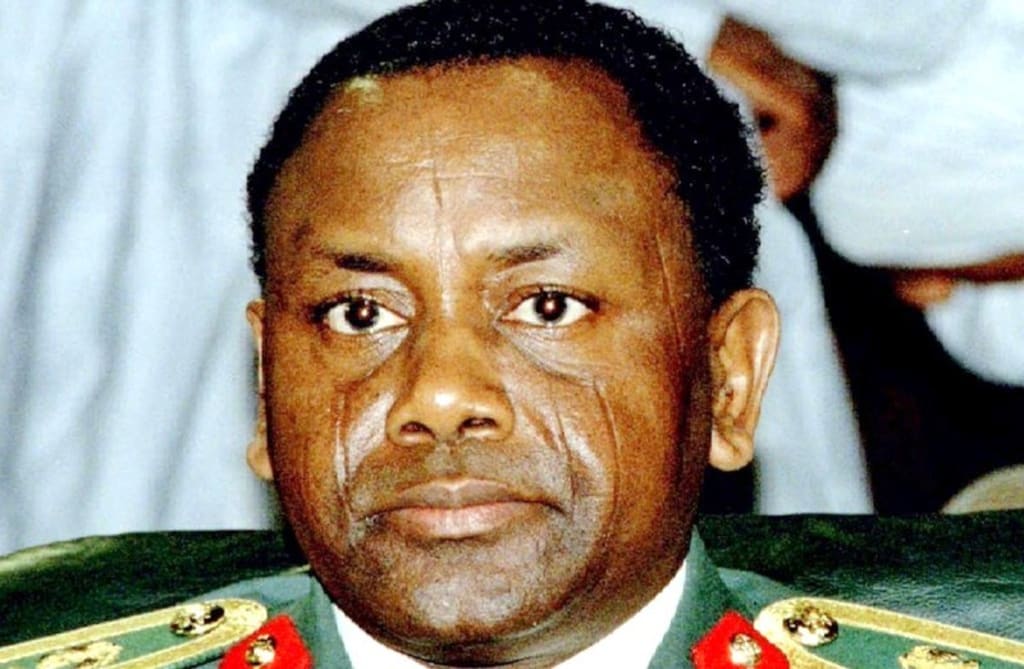
Preamble
In the 1980s, the military leader of Nigeria, Ibrahim Badamasi Babangida, better known as IBB, had promised to conduct elections and hand over power by 1990. To facilitate the process, two political parties were created and so was the governing electoral commission. Old generation politicians known as the old breed were banned from being part of the new dispensation, thus ushering the new breed politician. The new breed politicians had in their ranks, ex generals and previously elected governors, but none of this seemed to matter.
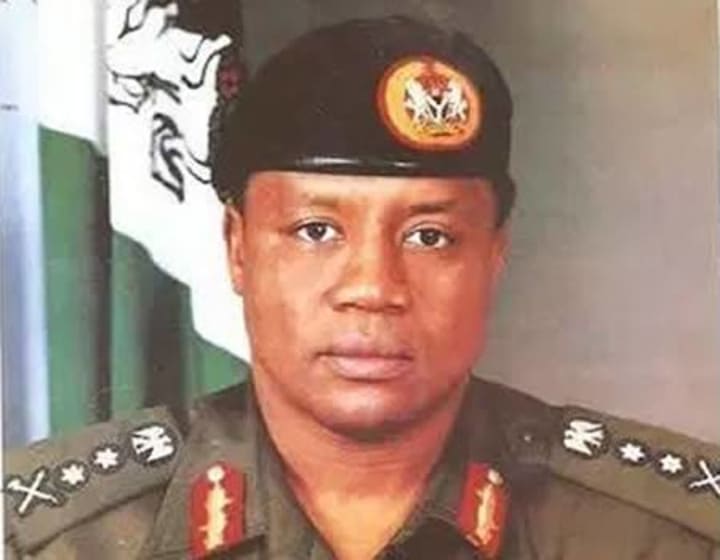
However, closer to the date, excuses were given about infrastructural inadequacies and the new deadline of 1992 was given. With this in mind the creme de la creme of the new breed politicians threw their agbadas and babaringas in the ring. No sooner had the battle begun than the old problems of rigging and corruption reared their ugly head, as such, Our crafty general was compelled to intervene and throw out the candidates and announce a fresh set of elections, thus postponing the handover date to 1993, thus setting the stage for Moshood Kashimawo Abiola to emerge.
Nigeria, perhaps more than most countries, is seriously football mad and yet up until that point, had never qualified for the world cup and perennially failed at the final hurdle of the African Nations Cup tournaments, the fact that some of its greatest players such as Henry Nwosu, Etim Esin, Muda Lawal and Segun Odegbami never got to show the world their talent seemed an absolute travesty.
Despite the painful history of disappointments and false dawns, something, it seemed had changed. Clemence Westerhof, the senior team's head coach had assembled players, who were coveted by decent clubs in Holland, Belgium and Portugal. By the time, the world cup campaign began on the 10th of October 1992 against South Africa- a country which was recently allowed to compete after the release of Mandela, the air was understandably thick with expectation.
1993: Annus Mirabilis or Annus Horribilis?
Everything that Moshood Abiola had done up until this point had been a preparation for this moment; he had carefully cultivated the Muslim North, gave huge amounts to popular causes and the relationship was reciprocated, he was showered with dozens of traditional titles as such, when it came to announce his run for the highest office in the land, it was his for the taking, but was it?
On Saturday, the 16th of January 1993, the super eagles played out a draw in a drab match against the South Africans on their home turf, defeated Congo Brazzaville in point noire, a lone goal from Nigeria's greatest ever goal scorer, Rashidi Yekini and qualified for the next and final round. The only problem was that the teams in next round were the reigning African champions (Ivory Coast) and Nigeria's perennial bogey team, Algeria. How this plays out, we will subsequently see.
Saturday the 12th of June.
The military government of Ibrahim Badamasi Babangida had set the date for the elections on Saturday, the 12th of June 1993 and the two political parties created for this purpose had gone on to select their candidates namely:
- National Republican Convention: Alhaji Bashiru Tofa.
- Social Democratic Party: Chief Moshood Kashimawo Abiola.
In the run up to the elections, the respective candidates were travelling around the country soliciting support from the various traditional rulers and power brokers. MKO Abiola, who had amassed a great number of traditional titles and had a lifetime of philanthropy behind him was easily the favorite. His opponent, whom no one had heard of, had it all to do.
It was at this point, a group hitherto unknown, called Association for Better Nigeria (ABN) went to the courts to prevent the election from holding. Interestingly, the courts ruled in allowing the elections to go ahead.
What followed was the freest elections ever conducted in the country's history. Voter turnout was quite high from throughout the federation, reflecting the electorate's military dictatorship fatigue.
By Monday the 14th of June, the results had begun trickling in, from the Northern part of the country, confirming what most people had suspected-Chief Abiola's resounding victory in the Northern states of Borno, Jigawa, Kaduna, Kano(his opponent's home state), Taraba and Yobe. No sooner had this begun than the results were immediately withheld.
What happened? What had gone wrong?
Second Round, World Cup Qualifiers.
Meanwhile on the 17th of May,the Super eagles had begun their second round qualification matches for the world cup due to be held the next year in America. The first game saw the perennial underachievers of African football up against the reigning African Champions- Ivory Coast. The Ivory Coast had a plethora of gifted players, a number of whom roll easily off the tongue - Abdouloye Traore (Ben Badi), Joel Tiehi, Aka Kouame, Serge-Alain Maguy, the mixed race Omar Ben Sallah and Alain Gouamene.
On the Nigerian side, two players who will come to shape the reputation of the Eagles in the 1990s were given their debuts- Sunday Oliseh and Austin "Jay Jay" Okocha. The game began auspiciously, with Nigeria taking the lead after twenty minutes and not too long after, Samson Siasia beat the offside trap, with only the goal keeper to edge out from a somewhat tight angle, decided to go for goal, despite his strike partner, Rashidi Yekini, in a much better position. The result? a missed goal opportunity from which the Eagles contrived to lose the game, 2–1.
National Announcement.
On the 23rd of June, the national radio and television stations had announced that the military president was due to give a live address to the nation, much later in the day. Back then in those ancient times, the state TV and radio channels were the only means of entertainment and everyone had gathered round the media awaiting the President's ceding of power to the country's wealthiest and most popular citizen.
But Ibrahim Badamasi Babangida (IBB)had other ideas; He began the speech by paying tribute to the candidates, rambling about the flaws of the electoral process, the rigging in various parts of the country, the petitioning of the association for better Nigeria and ended the speech by annulling the elections. This single action plunged an already fragile nation into chaos, riots in the Lagos, with shops, markets and businesses looted with impunity and a general acceptance that events would spiral into another civil war-with the Yorubas being the seceding tribe, this time.
IBB, who, unlike his successor, Muhammadu Buhari, was charismatic, engaging and better loved found himself becoming pariah overnight. According to internal military sources, a number of very senior officers, weren't privy to the decision and that led to an internal strife of within the armed forces, with some senior Northern players supporting the president and others taking a contrary position.
With Nigeria teetering on the brink of collapse and the armed forces mounting intense pressure on the helmsman, the unthinkable happened - IBB offered to 'step aside' with the 27th of August being his last day. To ensure that continuity was in place, a national interim government, would be put in place, which would be headed by Ernest Shonekan - a technocrat, who had spent the entirety of his career with the United African Company, rising to the very top. The arrangement bringing the Babangida administration to an end would see a great number of senior players in the military retiring with the notable grand exception of one man.
The Purple Patch: From the 3rd of July -25th of September.
Off the back of the defeat to the Ivory Coast, Samson Siasia was placed on the bench, for the game against Algeria and in stepped Daniel Amokachi, who was plying his trade at Club Brugge in Belgium.
Algeria was something of a bogey team for the Nigerian national team. Even though Nigeria had defeated the desert warriors(their sobriquet) to win its only Nations cup title at the time, the Rabah Madjer and Lakhdar Belloumi led team had inflicted a humiliating defeat in Lagos in 1981 and in the corresponding fixture in Algiers a fortnight later to qualify for Espana 82.
Ahead of the game on Saturday, the 3rd of July, it seemed like deja vu, all over again for Nigerians with long memories - still traumatized from the events of 1981. I remember the great Sunny Obazu Ojeagbase's complete football magazine, adding to the sense of history and pressure before the match.
The match itself, couldn't have got off to a worse start. Abdelhafid Tasfout, bullied Uche Okechukwu, the towering central defender to score for the desert warriors- 0–1 to Algeria.
What happened next, would be seared into the collective minds of Nigerian football fans. Augustine Okocha, whom the footballing public barely knew, contrived to turn the fixture completely on its head; First, with a free kick goal, having seen his initial attempt go wide. Then spotting that an Algerian defender was slightly distracted, threaded a brilliant pass to the greatest goal scorer in Nigeria's history - Rashidi Yekini, which he happily converted and then scored another, thus bringing the half time score to 3–1 for the hosts.
By the time, the 4th goal was added, much later in the second half, by Daniel Amokachi, Nigerian football fans departed the stadium with only one name on their lips; Augustine "Jay Jay" Okocha. Friday Ekpo, who wore the number 10 jersey on that very day, would be the last player to wear the coveted number for the next 15 years.
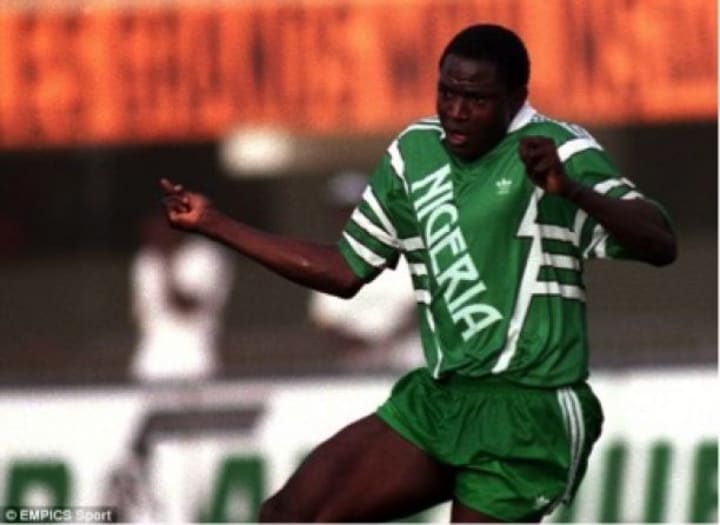
With the Super Eagles on a high from the morale boosting victory against Algeria, the next fixture against the Ivoriens on the 25th of September would simply reinforce the credentials of the players. At 3–1 up, early in the second half, Jay Jay Okocha took it upon himself to write himself into Nigerian football folklore, humiliating the extremely brilliant Aka Kouame, turning him inside out and outside in, much to the rapturous delight of the fans, and much to the chagrin of Westerhof, who promptly substituted him. For all soccer aficionados from Lagos to Enugu and from Warri to Zaria, these victories temporarily put the economic turmoil and uncertainty brought on by the annulled elections into shade and the country could look forward to the final match against the desert warriors needing only a draw to qualify for USA' 94.
The 27th of August.
On the fated day, the transfer of power took place from the military led to the civilian led interim, whose function was to oversee the transition to a democratically elected one within six months. Chief Ernest Shonekan, who was appointed to the role, found himself grappling with all kinds of mess from day one, with the trade unions, across all sectors downing tools.
As stated in the previous paragraphs, the entire core of the armed forces serving under IBB had been retired along with him leaving only the Minister of Defense - Sani Abacha. In the decree 61, which was promulgated to empower the interim government, there was a caveat which was inserted, unnoticed by everyone,which stated that in the event of the death or the retirement of Shonekan, the most senior minister would take over.Exactly who this was, no one knew.
All this while, Chief Shonekan's attempt to build a coalition to engender legitimacy was derided by players on all sides, who saw his position as weak and ineffectual.
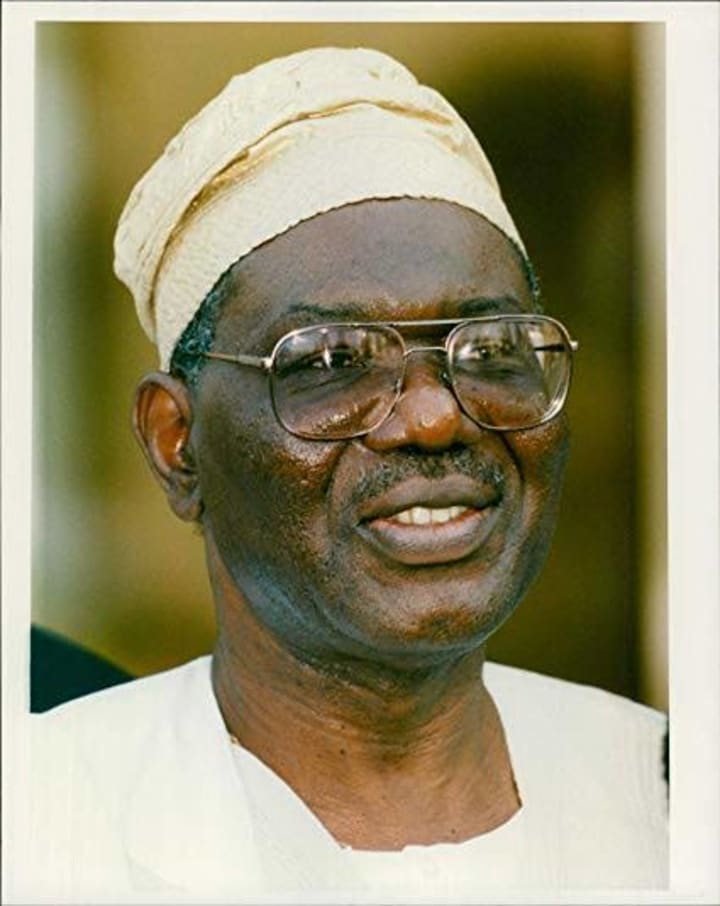
In the military, however, a small but important power struggle was being played out between Joshua Dogonyaro, an IBB loyalist and Sani Abacha, the most senior military officer. This didn't last very long as Abacha, quickly moved to clip the wings of Dogonyaro, who resigned by mid September.
In late 1991, as part of the efforts to restore Nigeria to civilian rule, Governorship elections were held nationwide and the winners were sworn in January 1992. In Lagos, the leading candidates of the Social Democratic Party- Professor Femi Agbalajobi and Mr. Dapo Sarumi had bitterly contested the results of the primary elections leading to the banning of both men. This effectively handed the keys of the state house to the candidate of the National Republican Convention- Sir Michael Otedola, whose grand daughter, DJ Cuppy is more famous than he ever was in the state that he governed for two tumultuous years.
By October 1993, Lagos - which was the center of economic activity - would fall apart, so much so, on being interviewed by members of the press, Governor Otedola said that there wasn't very much he could and was open to the military placing his state under curfew, on his watch. These events and others would set the stage for what would come next.
Friday, the 8th of October.
A few months prior, members of the Under -17, known as the golden eaglets, went to Japan to compete for the school boy's world cup. Nigeria had in its junior rank, quite possibly the most accomplished set of players in the tournament and names that the football world will come to recognize- Wilson Oruma, Emmanuel Babayaro, Celestine Babayaro, Pascal Karibe Ojigwe and arguably the greatest of them all- Nwankwo Kanu.
Despite the squabbling and rivalry between the Captain Wilson Oruma and its talisman, Kanu, (both of whom scored 5 goals)the U-17 managed to swat every team that it met, winning the title for the second time- the first time being 1985, when the likes of Fatai Atere, Victor Igbinoba and Nduka Ugbade smashed Germany 2–0.
Despite the victory of the golden eaglets, the only thing that mattered was qualification for the seniors. To this end, nothing had been left to chance for this once in a lifetime opportunity for the Super Eagles, who as stated previously, needed a draw at the July 5 stadium in Algiers.
By the time the match kicked off at 7pm, local time, yours truly was busy queuing to buy kerosene, and had to make do with the noise emanating from those listening to the match on their radios - an important point of note, especially as there was no electricity in the entire neighborhood of Akoka, Lagos on the night of the 8th of October.
It didn't take long for the eagles to make their presence felt and indeed, by the twentieth minute, when Daniel Amokachi inadvertently back heeled Amuneke's cross for Finidi George to score, Nigeria was half way to exorcising the ghosts of history. Not even the equalizing goal of the Algerians could spoil the party. The players hung on and by the end of the match, Nigeria, for the very first time, in its football history, had qualified for the Senior world cup.
November 1993: The final curtain call.
The victor of the 1993 elections, Moshood Abiola had fled Nigeria for a few months to drum up support for his mandate, during his exile, he met with prominent Black British politicians such as Bernie Grant and Paul Boateng and granted interviews to the likes of Jon Snow of channel 4. while this was going on, politicians were openly clamouring for the military to intervene to end the civilian led government; allied to this, the courts had declared the ING ( Interim National Government) illegal and unconstitutional- a decision which set the stage for the set of events.
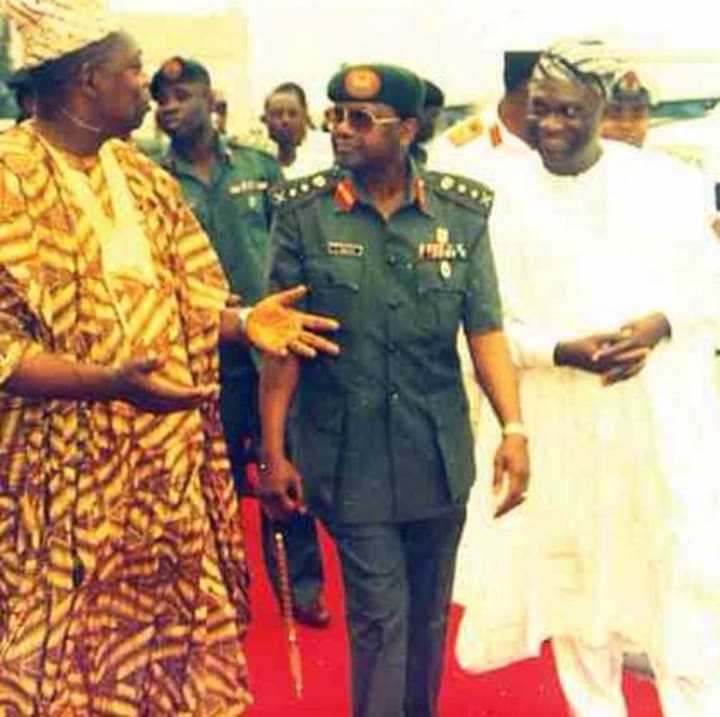
On Wednesday, the 17th of November, members of the ING had convened for a meeting with the Chief Shonekan, only to be kept waiting, due to prior commitments. Once General Abacha with his colleagues requested a face to face with Shonekan urgently, with a vast number of troops stationed outside did anyone realize that something was up.
General Sani Abacha gave an assessment of all that had gone wrong with the short lived interim government and informed the technocrat of rumblings of a coup plot, at which point demanded the resignation of the nation's chief executive.What took place on the night of the 17th of November should be seen as nothing other than a military coup.
The military coup would eviscerate the erroneous impression that Shonekan had any powers at all over the military and also destroy the notion that had MKO Abiola been sworn in, he would have been able to govern freely. General Sani Abacha in his four and half years would go on to be the most brutal leader that the country has ever produced in its history.
Epilogue
1993 was in a lot of ways a profoundly anarchic year for Nigeria; It conducted an election which cost 15% of its GDP and then went on to annul it. It had a change of government twice and its very stability was shaken to its core, in a way that it has never had since the civil war and yet through the madness, It found unparalleled success on the football field, qualifying for the world cup for the very first time in its history and also won the U-17 FIFA world cup for the second time, thus bringing a divided, inchoate people together, at a time when its very existence was in peril.
If there ever was a time that Nigerians needed convincing that God was Nigerian, it certainly was 1993 and guess what? God did deliver in the most extraordinary way possible.
Thanks very much for reading.
About the Creator
Adebayo Adeniran
A lifelong bibliophile, who seeks to unleash his energy on a number of subjects






Comments
There are no comments for this story
Be the first to respond and start the conversation.